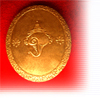 |
|
EXTRACTS FROM MUSIC AND THE ROYAL HOUSE OF TRAVANCORE
“…Vadivelu Nattuvan and Raghava Iyer, two of the greatest
musicians that Travancore has ever produced, though they may not be so
generally known. Govinda Marar and Vadivelu were contemporaries and were
recipients of allowance from H.H. Swathi Tirunal Maharaja. Raghava Iyer
was the pet of H.H. Ayilyam Maharaja. I have here mentioned two of the
greatest royal patrons though this does not mean that there were not other
less prominent patrons of this noble art in the royal house of Travancore
As stated above, H.H. Swathi Tirunal was an eminent musician and composer.
He played on the Swarabit, and, on this instrument, his own Dewan Mr.
Subba Rao was a companion player. What should we think of the importance
that would naturally have been attached to music by the people, when the
reigning sovereign and his trusted minister were both exponents of the
art and took a lively interest in its development? Almost every evening,
the Dewan had musical performances at his residence, at which the eminent
Vadivelu took part. It is known that there were at least two other composers
at that time in Travancore, one of whom as H.H.’s own relative,
viz ,Iravi Varman Thampi and the other Ponniah, the younger brother of
Vadivelu.
Govinda Marar and Vadivelu (both of whom won the appreciation of Tiagayya of Tiruvayyar, the great composer,) were patronised by H.H. Swathi Tirunal. The first received his allowances from the Palace though he soon left Travancore, intent on his pilgrimage to Benares. Vadivelu received the handsome salary of Rs, 110 at a time when Munsiffs and Tahsildars were paid Rs-40 and 30 respectively. As a singer, he was certainly one of the best of his age, and according to Parameswara Bagavathar, the veteran musician of Trivandrum, was unequalled by any vocalist of a later age. Vadivelu was the man who first introduced the violin into Travancore. He was a dancing master as well as a musician. He was engaged by the Dewan to give performances before him almost every evening to the delectation of the officers who were invited to attend them, and sometimes the Dewan himself took part in the performance with his Swarabit. While Govinda Marar left Travancore for good and alter on distinguished himself at Tiruvayyar and Baroda and died at Pandrapoor near Poona, the native place of the composer Jayadevar, Vadivelu fell into disfavour with his sovereign and lived and died an exile at Haripad, though he continued to receive his usual allowances.”
-T.Lakshmanan Pillai
EXTRACTS FROM A GARLAND
A genius, the popularised the use of violin in Carnatic music circles:
He was the best – loved of the artistes of Swati Tirunal, who appointed
him at the latter’s age of fourteen as asthana vidwan and honoured
him in every way. Govnda Marar, the Shatkala was drawing a salary of just
rupee one more than vadivelu. Strangely the patron and the patronised
both lived only for a little over three decades. A scholar in tamil and
telugu, vocalist, violinist, composer and bharatanatyam exponent, Vadivelu
delighted not only the Ruler of Travancore, but drew praise from Tyagaraja
himself. The saint entered his house and praised him – a gesture
rarely extended by the sage. Like wise the respected Tiruvoriyur veena
Kuppa ayyar honoured him by giving his own exalted seat to him besides
presents during vadivelu’s trip to madras in 1828. It was then he
gave lessons to Ambayiram in violin. It was because of his erudition and
eminence that Swati Tirunal advised him to take up the mission of bringing
Tyagaraja to Travancore though Govinda Marar ultimately did it. It was
his ‘Nata’ varnam that brought forth the spiritually exalted
views of Swati Tirunal that Music shall be in praise of the Lord and that
it i not worth the name if it has any lower aim’ “Sarasijanabha”
(Kambohi – Khanda Ata tala) varnam is his. There is also a legend
about acknowledged super vocalist, gave a fine performance and in a mood
of egoism asked his guru, Parameswara Ayyar how his concert compared with
Vadivelu’s. The master shot back, ‘You are not fit even to
carry his lampstick torch before him. It may be said, ‘not that
the ranking of Raghava in the estimation of his guru was low but that
of vadivelu was high. The point is Vadivelu was taken by him as yardstick
or unit of estimation. Vadivelu learnt violin under an European missionary
at Tanjore. After all, Baluswamy Dikshitar, the first to learn violin
play, was but the younger brother of his guru and Vadivelu’s natural
genius should have been tickled to follow.
The depleted Tanjore Court invited the brothers back and all but Vadivelu responded. Ponniah was asthana vidwan at the Tanjore Court. The star of the quartette died prematurely and the world of art lost precious gem.